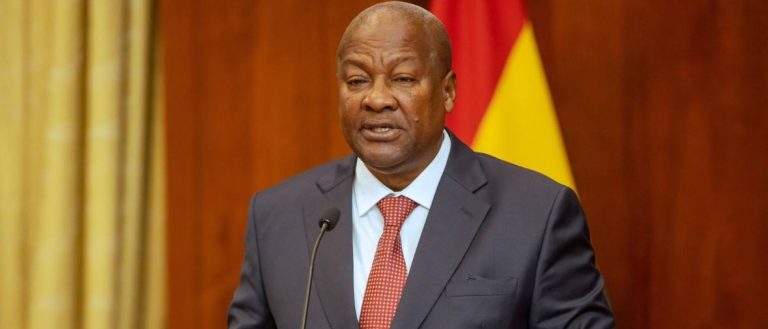In a world increasingly defined by shifting alliances and global uncertainty, Ghana is positioning itself as a beacon of strategic diplomacy and regional leadership. On Tuesday, President John Mahama reaffirmed Ghana’s unwavering commitment to deepening ties with the European Union (EU), hailing the partnership as a “cornerstone” for the country’s national development and regional influence.
Speaking at the 2025 Ghana-EU Partnership Dialogue, held at the Ministry of Foreign Affairs in Accra, President Mahama underscored the importance of this evolving relationship. He described the EU not just as a development partner, but as a “co-architect of a new global order” one that is rooted in mutual respect, sustainability, and shared ambition.
This year’s dialogue held under the theme of cooperation for a fairer, greener, and more secure world—brought together EU ambassadors, Ghanaian government officials, business leaders, and representatives from civil society. Far from a ceremonial event, the forum served as a working platform to evaluate progress and define actionable goals in key areas such as green energy, security, trade, and governance.
“Our partnership is not merely symbolic,” President Mahama stated. “It is a living instrument that anchors our shared pursuit of prosperity, stability, and sustainable development.”
The emphasis on “shared pursuit” reflects a noticeable shift in Ghana’s foreign policy language: one that moves beyond aid and assistance toward equal partnership and mutual growth.
One of the highlights of this year’s dialogue was the renewed focus on unlocking investments, particularly in sectors that promote green transition and job creation. As Ghana ramps up efforts to decarbonize its economy and modernize its infrastructure, the EU is expected to play a central role in facilitating technology transfers, funding renewable energy projects, and supporting Ghana’s growing innovation ecosystem.
President Mahama stressed that sustainable development must be led by bold investments, not only in physical infrastructure but in people and ideas. “We see the EU as a partner that not only shares our vision but is ready to walk the journey with us,” he said.
With West Africa facing increasing security challenges from violent extremism to climate-induced migration the partnership between Ghana and the EU is also evolving to address these emerging threats. Discussions during the Dialogue emphasized the need for integrated security cooperation, capacity-building for law enforcement, and joint efforts to promote democratic governance in the region.
The EU has long supported Ghana’s peacekeeping initiatives and is now working closely with the country on broader security strategies that link national resilience with regional stability.
Beyond bilateral cooperation, the Dialogue also focused on the need to reform global governance institutions to better reflect the voices and aspirations of developing countries. Both Ghana and the EU expressed their commitment to championing multilateralism, inclusive trade, and fair representation in international decision making platforms.
As the global south seeks a more equitable role in shaping world affairs, Ghana’s leadership in calling for reforms backed by the EU’s institutional influence may prove vital in shaping the contours of a more balanced global order.
The 2025 Ghana-EU Partnership Dialogue closed with a renewed sense of purpose and a clear roadmap for action. As Ghana continues its transformation journey, this revitalized partnership with the EU offers not only economic promise but a template for how development diplomacy should look in the 21st century.
By embracing mutual interests and common goals, Ghana and the EU are redefining what it means to be partners not just in development, but in shaping a world that works for all.
“This is the kind of partnership Africa deserves,” said a senior government official after the Dialogue. “One that listens, invests, and evolves together.” And as Ghana builds forward, that partnership may well be one of its most powerful tools.

